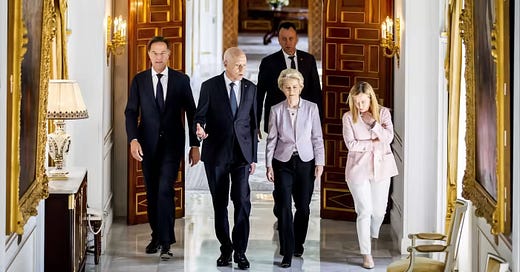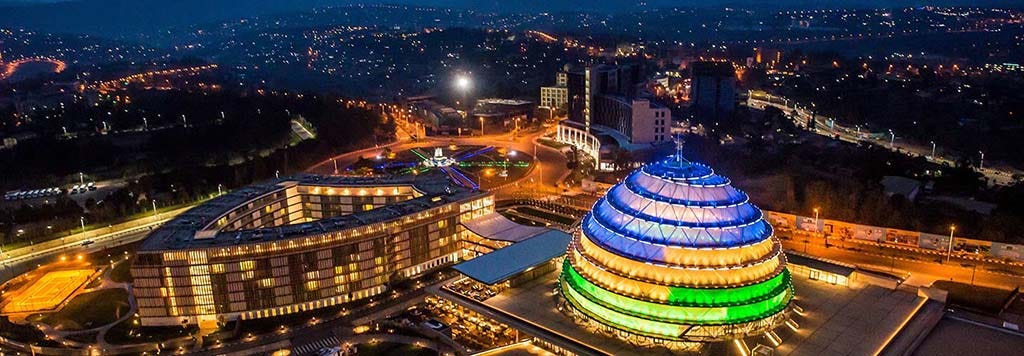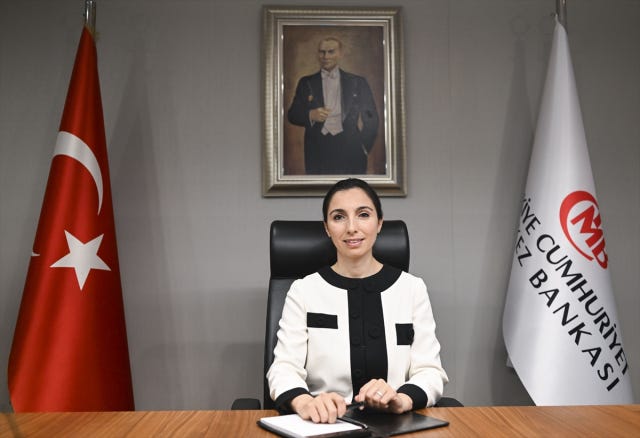This week - Tunisia deal, Peru protest attacks, Rwanda forum, Turkish central bank
Week of June 12th, 2023.
This week we have fresh news from a new EU deal for Tunisia, as Italian PM Meloni has been pushing for a breakthrough. We also have reports of attacks on oil tankers in Peru, which could be part of the broader protest movement in the country. Rwanda will be hosting a global fintech forum, with a backdrop of fast growth. Finally, in our Central Banks section, we will be delving into Erdogan’s unusual pick for governor. We also have some key takeaways from Turkey’s May 2023 report.
European leaders seek funding deal for Tunisia

Italian Prime Minister Giorgia Meloni, Dutch Prime Minister Mark Rutte and made an official visit to Tunisia on Sunday, June 11 to meet Tunisian President Kais Saied and Prime Minister Najla Bouden on June 11 to discuss the matter of Tunisia's ongoing economic crisis. Earlier this year, Saied openly rejected what he referred to as "diktats" by the IMF, in reference to a proposed conditional lending scheme. This meeting came following a previous visit by Meloni to Tunisia on June 6. At Sunday's meeting, EU leaders considered offering a new package of 1 billion euros to Tunisia to help alleviate the ongoing financial crisis. In addition to this, the EU has offered to send an immediate 100 million euros for border management, search and rescue and anti-smuggling efforts.
Meloni diplomacy
The Italian Prime minister's efforts at strengthening diplomatic relations with the Maghreb region may at first glance appear counter-intuitive with her position as a member of the far right, staunch opposition to immigration and anti-muslim crackdown in Italy. However, this may be part of a strategy to outsource migration control to other countries such as Tunisia similar to how the Syrian refugee crisis was handled. Additionally, Kais Saied's recent anti-migrant sentiments may have presented an opportunity for Meloni to address immigration through Tunisia and possibly build stronger ties with Algeria to achieve Italy’s ambitious goal of becoming a centre for energy in Europe.
Oil tankers attacked in Peru
Last week Reuters reported on the attack on two oil tankers by indigenous protesters in Peru. Incidents took place in the province of Loreto, on an Amazon tributary. The assailants could have used guns and Molotov cocktails, according to oil firm Petrotal. They would be part of an indigenous rights organisation, which attempted to hold the ships hostage until the navy intervened. The attacks come at a time of political instability and discontent in Peru.
Unrest has grown since President Pedro Castillo was removed six months ago, especially in rural areas and among indigenous communities. Castillo had attempted to stop an impeachment process against himself by dissolving congress - a tactic successfully employed later by Ecuador’s President Guillermo Lasso. Then-Vice President Dina Boluarte stepped in, reneging on all her predecessor’s ambitions. This angered Castillo’s support base, prompting mass protests, drawing in mostly the rural poor to the capital, Lima. For weeks, they blockaded most land routes to the city. Boluarte is currently facing accusations of human rights abuses, after 67 people have been killed in the protests against her government.
Fintech Forum to be held in Kigali, Rwanda
From 20 June-22 June the Inclusive Fintech Forum is set to hold a 3-day convention in Kigali the capital of Rwanda in hopes of bringing together policymakers, regulators, investors and entrepreneurs to discuss strategies for using technology to promote and improve financial services in the country. The main topic of interest for this upcoming conference is increasing access to banking nationwide through technology. Among those expected to attend the conference is the President of Rwanda Paul Kagame, the Board Chairman of the National Bank of Rwanda John Rwangombwa and the Managing Director of the Monetary Authority of Singapore Ravi Menon.
Development in Rwanda
Over the past decade, the Republic of Rwanda has witnessed considerable economic growth and is expected to achieve middle-income country status by 2035 and high-income country status by 2050 according to reports by the World Bank. Rwanda's GDP growth is expected to reach 7.6% in 2023, making it one of the fastest-growing economies in not just Africa but the world.
Central banks
US corporate Erkan to lead Turkish central bank
Erdogan has appointed a new central bank chief, Hafize Gaye Erkan. Given the president’s unorthodox economic ideas, Erkan’s appointment has come as a surprise. The new governor had built her career on risk management and classical mathematical models. She has been working in the US corporate world, between Goldman Sachs and First Republic. After graduating from Turkey’s leading Bogazici University, she went on to study for a PhD at Princeton. Erkan later completed business programmes at Harvard Business School and the Stanford Graduate School of Business. Choosing Erkan could be part of Erdogan’s new strategy to surround himself with Western-friendly technocrats.
Turkey’s central bank is facing a crisis; this year it has already burnt through $25 bn, mostly to prop up the lira. However, last week Reuters pointed out a surprising inflow of $3 bn of foreign deposits. They are likely to come from Gulf Cooperation Council (GCC) states. As the lira tumbles with rising inflation and low interest rates, Erdogan’s plans increasingly rely on financing from ‘friendly countries’, such as Qatar, the UAE and Russia.
Turkey’s May Report
Central Bank of Türkiye releases price developments report for May 2023, revealing the following key findings:
Consumer prices increased by 0.04% on average.
Annual inflation decreased by 4.09 points to 39% caused by a provision of free natural gas to households.
The price of services increased by 4.6%.
Energy prices declined by 21%.








